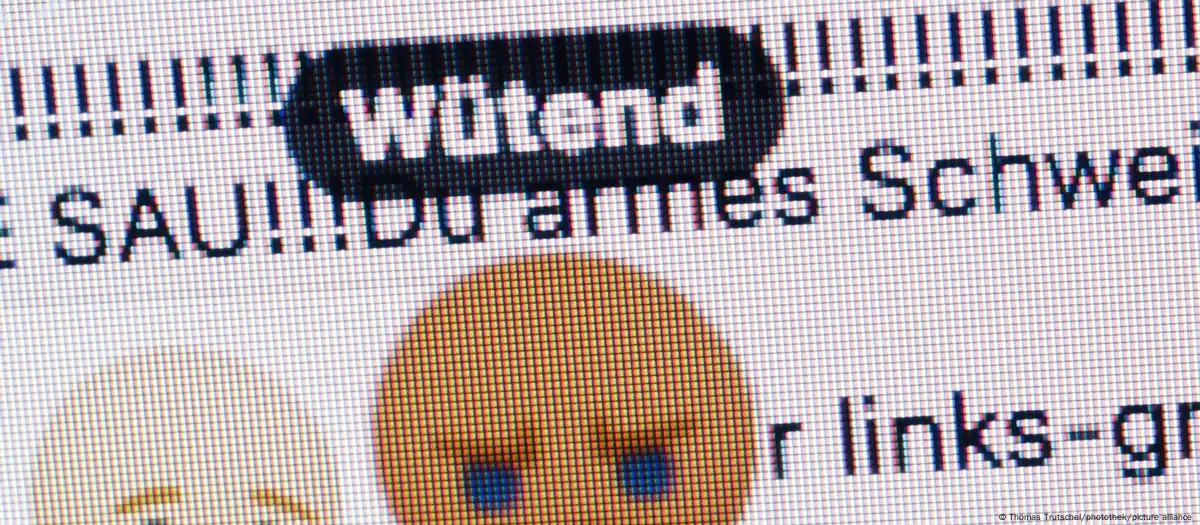
Can everyone express their opinions in Germany? Yes, but within certain limits. Country has more strict rules than, for example, the US, in order to protect young people, privacy and personal honor.
There is freedom of expression in Germany. This is assured in Article 5 of the Fundamental Law, the German Constitution. The law, however, also states that this freedom has limits, when it comes to, for example, to protect young people, privacy or personal honor.
The protection of personal honor, in particular, plays an important role in the German legal tradition, says lawyer Ralf Poscher, director of the Max Planck Institute for Research on Crime, Security and Law in Freiburg. “This comes from class society, in which it was even more important. These concepts of honor, which were also adopted by the bourgeoisie, became part of our legal system. ”
German Constitution puts certain individual protections in front of freedom of expression | Maja Hitij/Getty Images
In Germany, it is a crime insulting, as well as spreading lies that denigrate others. Therefore freedom of expression is much more restricted in Germany than, for example, in the United States, explains Nadine Strasen, a professor at New York Law School. Former President of the American Union for Civil Freedoms (ACLU), she is considered a rigorous defender of freedom of expression.
“The first amendment of the United States Constitution is the national law that protects the most freedom of expression in the world,” Strasen said. Therefore insults and defamatory lies are widely covered by the Constitution. “Even if you find a hateful, extremist message or inciting violence, that, by itself, will never be sufficient in our country to justify its suppression.”
Denial of the Holocaust Forbidden in Germany
Strusen’s father survived Buchenwald’s concentration camp. However, she says that the denial of the holocaust should also be allowed. In Germany, it is a crime to publicly deny the genocide of the Jewish people committed by the Nazi regime.
This fits the so -called incitement of hatred. Anyone who incites hatred or violence against certain ethnic, religious or national groups can be punished with up to five years in prison.
Expressing political opinions without hate speech is, however, allowed, explains jurist Poscher. “Freedom of expression and freedom of meeting protects all kinds of opinions, even at the ends of the political spectrum.” Therefore the manifestations of right -wing extremists are allowed in Germany. “Of course they should not cross the line of intimidation, insult, degradation and things of the genre, but they can also propagate antichonstitutional ideas.”
Only when the enemies of the Constitution are organized in such a way that they can represent a threat to democracy can the state fight them. Thus, parties and associations can also be prohibited. The so -called “defensive” democracy aims to prevent Germany from becoming a dictatorship again, as in the Nazi era.
 Naturism in Germany, 1950: Americans are much more pudden about nudity | AKG-IMAGES/PICTURE ALLIANCE
Naturism in Germany, 1950: Americans are much more pudden about nudity | AKG-IMAGES/PICTURE ALLIANCE
Better ignore than forbid?
For Strasen, although all this is well-intended, it does not comply with the purpose of protecting human dignity. “I think this paternalistic approach not only limits individual freedom, but it is ultimately ineffective. The story shows that the best way to draw attention to your message is to try to stop it. ”
The worrying rise of the Alternative Ultraceriteist Party for Germany (AFD), which is partly right extremist, does not occur despite attempts to punish hatred statements, but precisely because of them, Strasen says.
“This increases attention, increases sympathy, intensifies suspicion and distrust of established parties.” The activist believes it is better to ignore hatred and incitement than forbid them, and that false allegations can be refuted.
The debate on the limits of freedom of expression has intensified since the emergence of social media. These tools allow everyone to publicly express their opinions – but also hatred and incitement.
In a study commissioned by the German family ministry, almost half of the participants revealed that it was already insulted online. A quarter was threatened with physical violence and 13% with sexual violence, and 55% consequently started to participate less in the discussions.
Limits of Freedom
Jurist Ralf Pauscher denounces an incivil debate, which can be found in part on the internet, “where we are degraded, insulted, and chased with a flood of hate comments.” Therefore, “many no longer participate in public debate.” However it is the basis of a living democracy. There are, therefore, many arguments in favor of “insisting on certain civility in the public debate.”
Germany is further ahead than the United States in freedom of expression regarding sexual content and nudity, Strasen recalls. “We Americans are notoriously pudical.” Showing a woman’s breasts breastfeeding, for example, would be censored in the US.
Originally published by DW on 21/02/2025
By Peter Hille
Source: https://www.ocafezinho.com/2025/02/22/por-que-discurso-de-odio-e-crime-na-alemanha/

